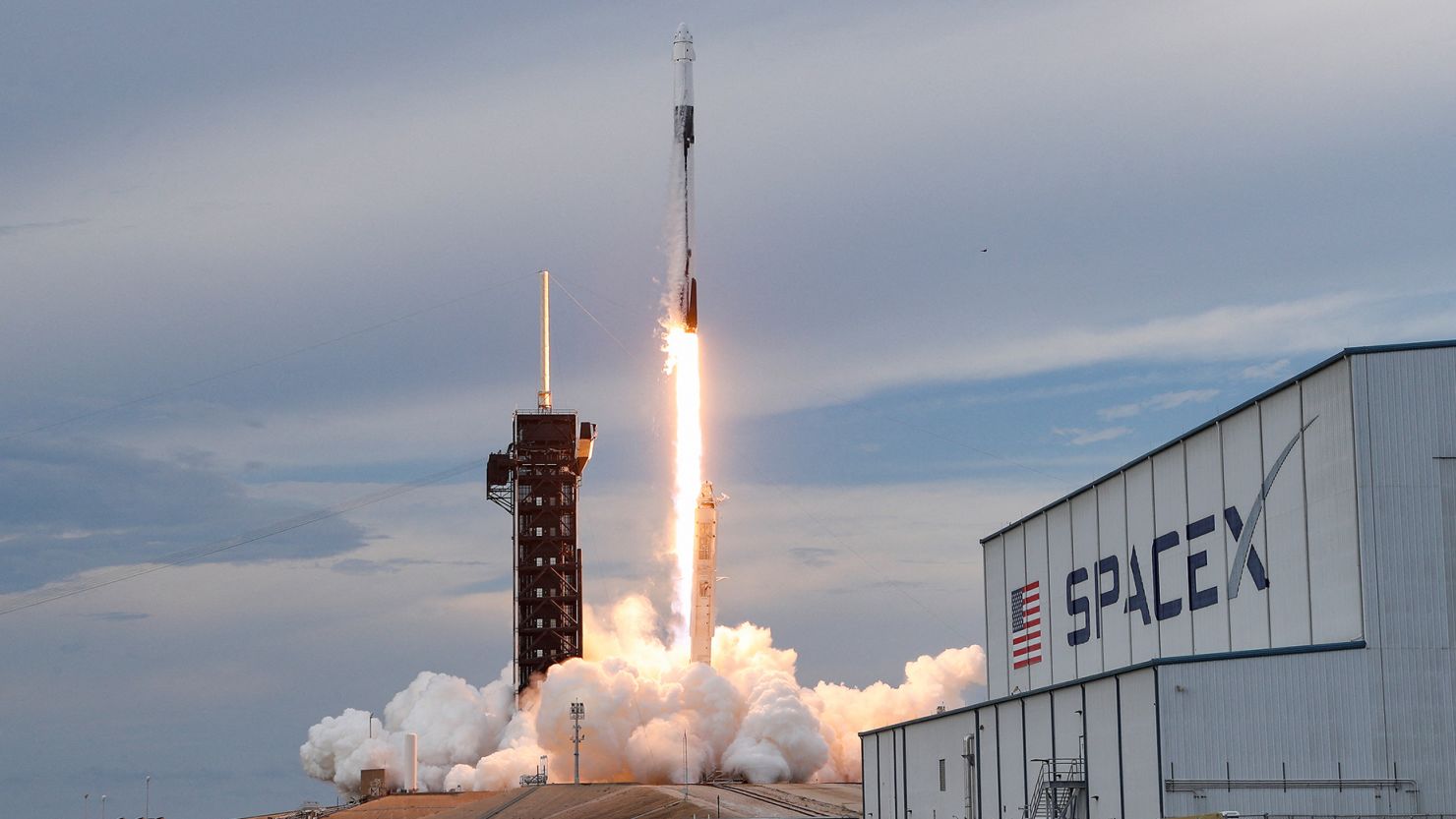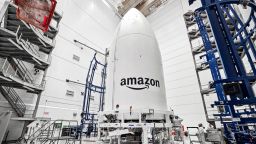Sign up for CNN’s Wonder Theory science newsletter. Explore the universe with news on fascinating discoveries, scientific advancements and more.
Amazon just inked a deal with chief competitor and Elon Musk-helmed SpaceX to launch internet-beaming satellites — a move that comes even as Amazon founder Jeff Bezos pursues his own space dreams with his own rocket company, Blue Origin, and as SpaceX builds its own internet constellation.
While Musk and Bezos have notoriously been publicly competitive and have a history of openly sparring on social media, with Musk regularly making crude jokes about Bezos and Blue Origin, it is not uncommon for business rivals to team up in the world of rocket launches. Some Amazon satellites will still ride on a large rocket made by Blue Origin, dubbed the New Glenn. But it’s been delayed for years and will make its launch debut next year at the earliest.
Amazon announced the deal in a news release Friday, saying the company has signed an agreement to launch its satellites on three SpaceX Falcon 9 launches, which are expected to begin as soon as mid-2025.
Amazon is working to build a constellation of thousands of internet satellites, called Project Kuiper, that is planned to beam connectivity across the planet. It will compete directly with SpaceX’s Starlink service, which already has more than 5,000 satellites in orbit.
Amazon is well behind its competitor. It has two prototype satellites, which were launched in October aboard a rocket built by United Launch Alliance, which is a joint venture between Boeing and Lockheed Martin.
The Jeff Bezos-founded company made headlines in April 2022 when it signed a contract worth billions of dollars to launch Kuiper satellites on 77 rockets built by Blue Origin — another Bezos-founded venture — as well as ULA and European launch provider Arianespace.
But those initial contracts also spurred a shareholder lawsuit.
Filed by the The Cleveland Bakers and Teamsters Pension Fund in August, the lawsuit alleges Amazon executives “consciously and intentionally breached their most basic fiduciary responsibilities” in part by forgoing the option of launching Project Kuiper satellites on rockets built by SpaceX, which the suit claims is “one of the most cost-effective launch providers.”
“The claims in this lawsuit are completely without merit, and we look forward to showing that through the legal process,” said an Amazon spokesperson at the time.
In its statement Friday, Amazon said that the earlier deal “provides enough capacity to launch the majority of our satellite constellation, and the additional launches with SpaceX offer even more capacity to support our deployment schedule.”
Regardless of who gets to launch the satellites, however, first Amazon must get the satellites to work.
In an interview last month, Rajeev Badyal, vice president of technology for Project Kuiper, told CNN the prototypes were wholly successful.
“So far, everything that we’ve tested on ground, we’re getting the same results up in space,” Badyal said.
That paves the way for Amazon to begin launching more batches of operational satellites. Badyal said the company is planning to begin beta testing the service with customers as soon as late 2024.









